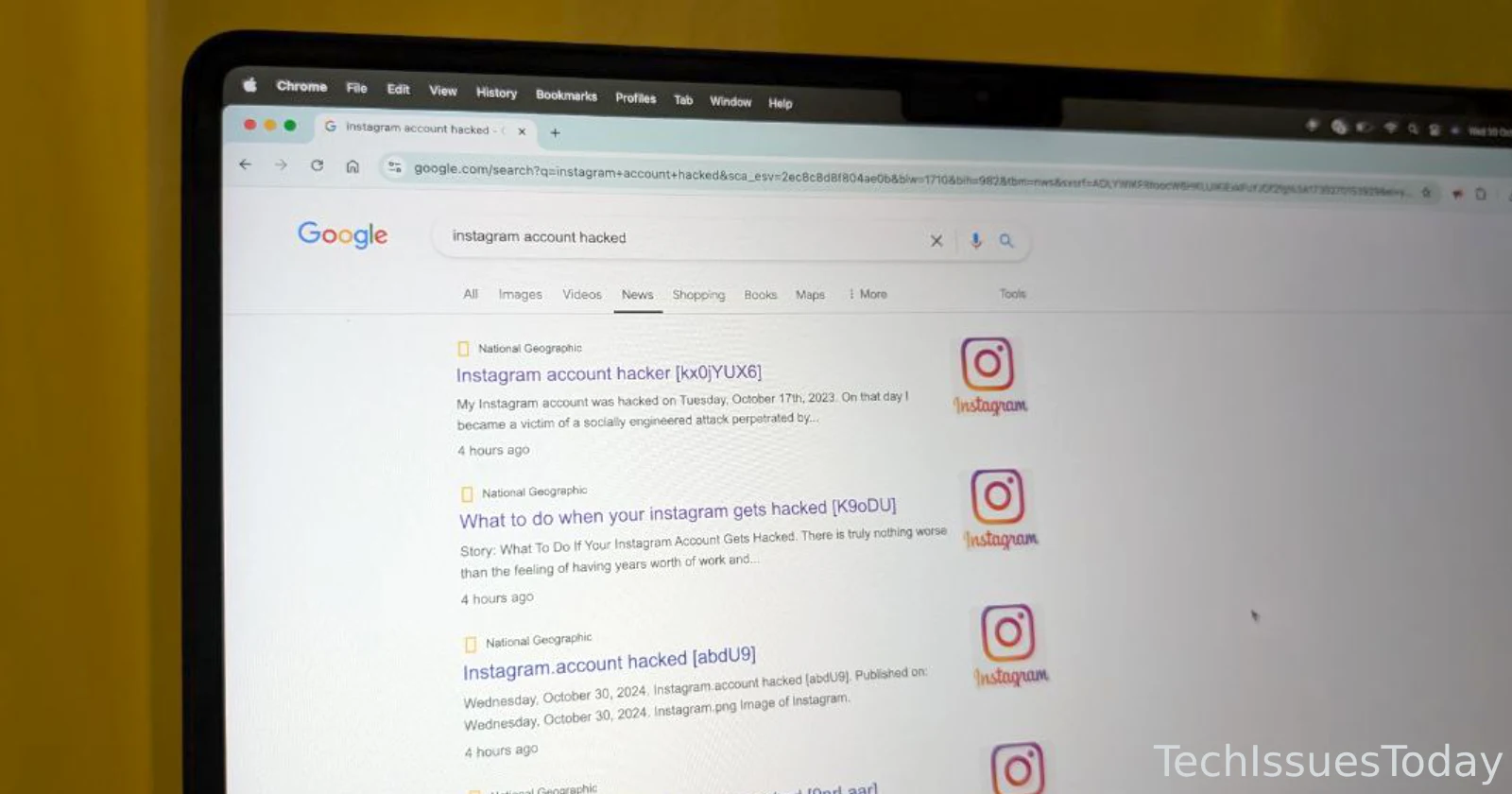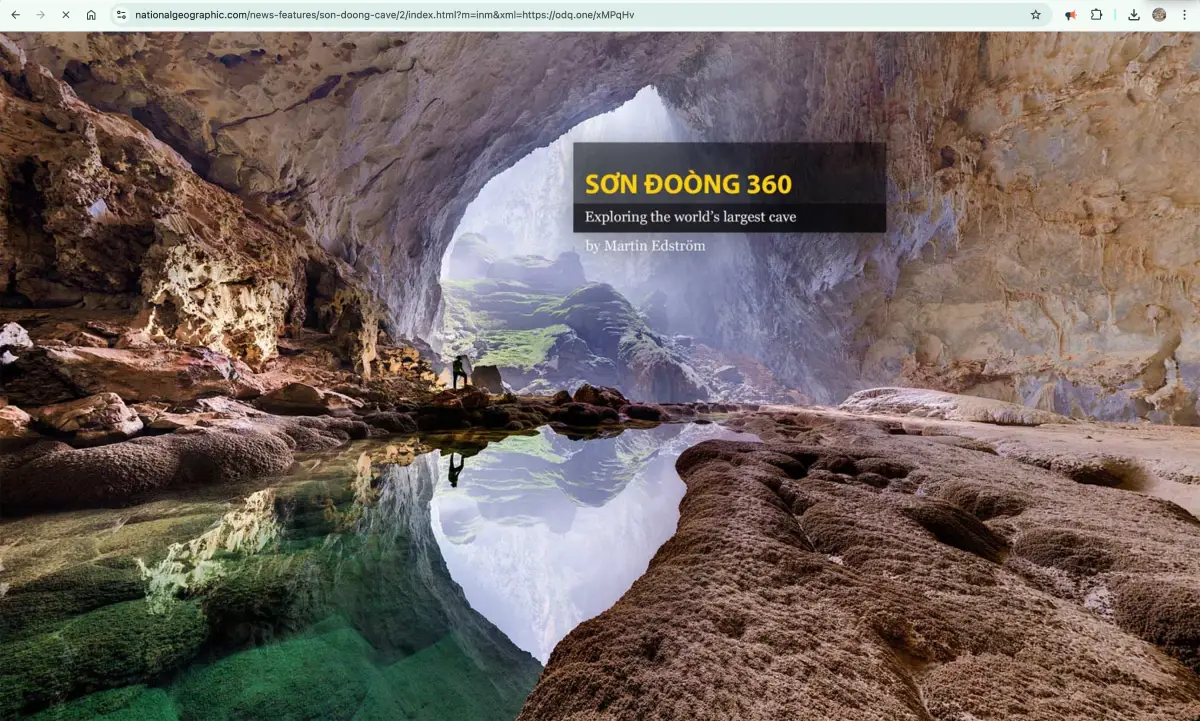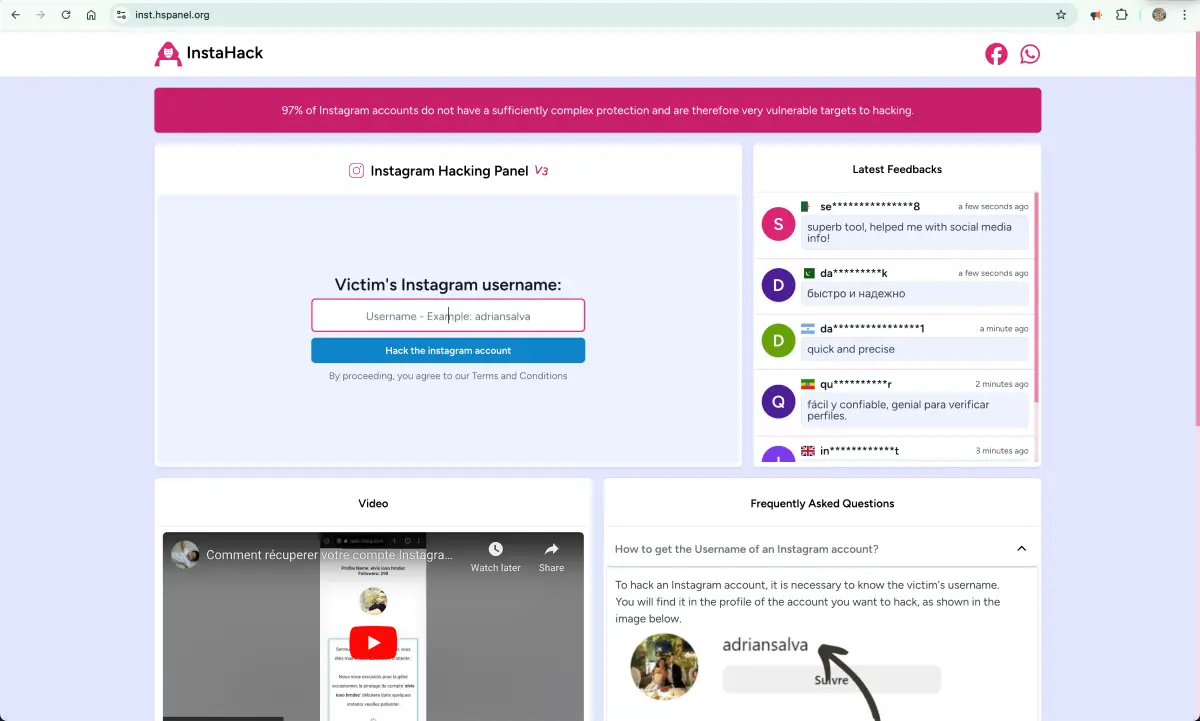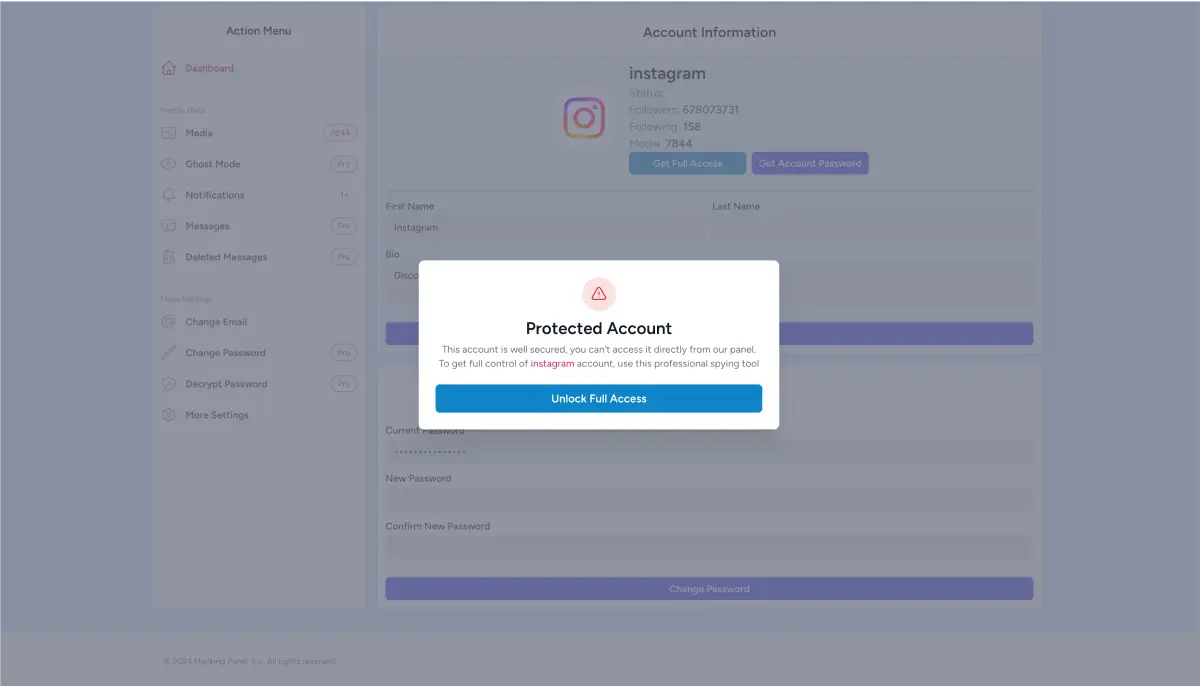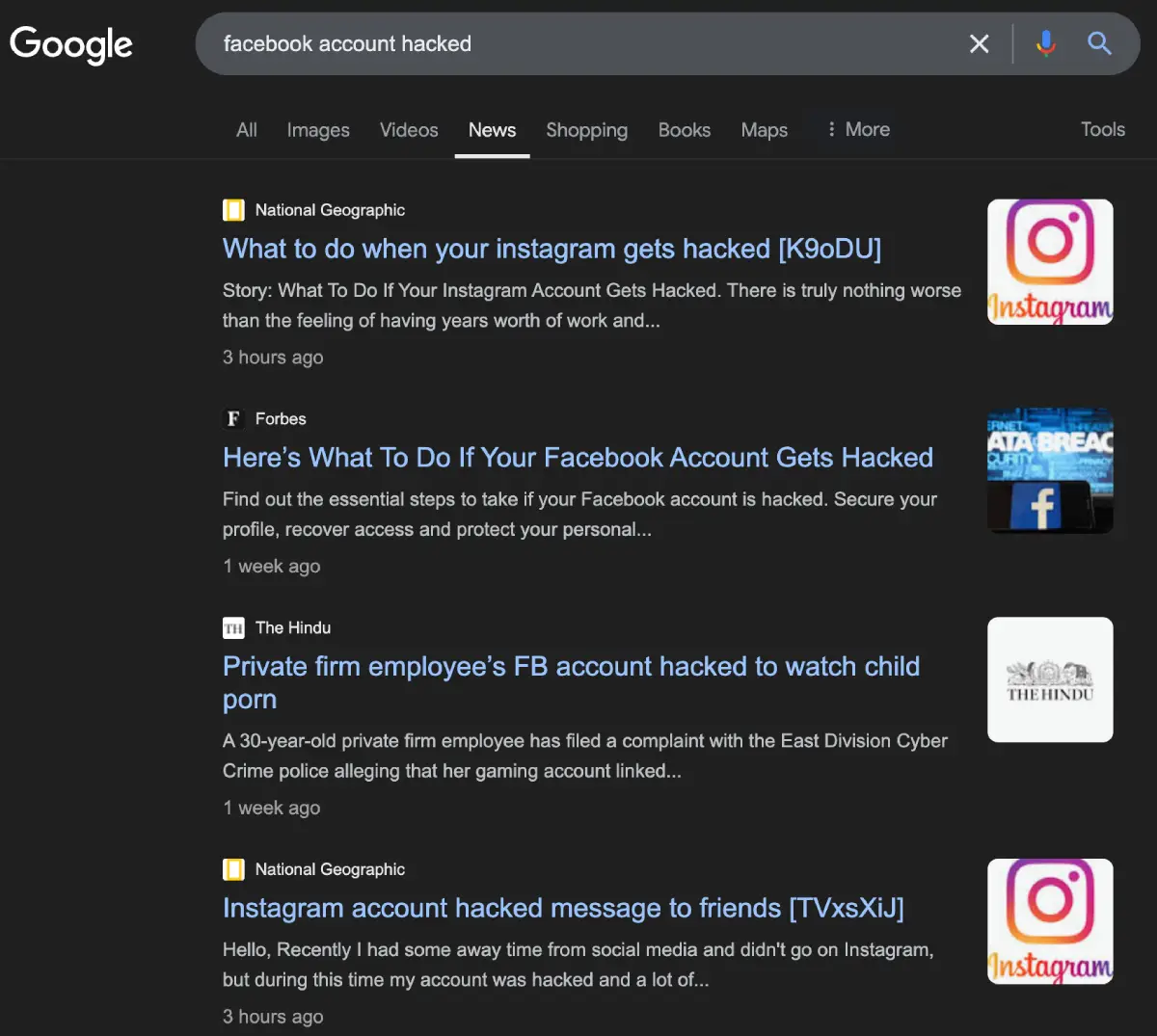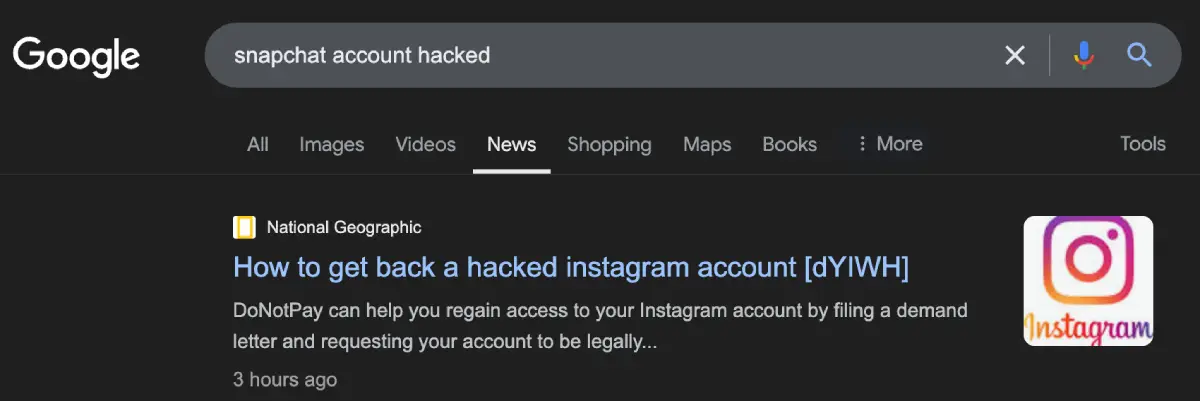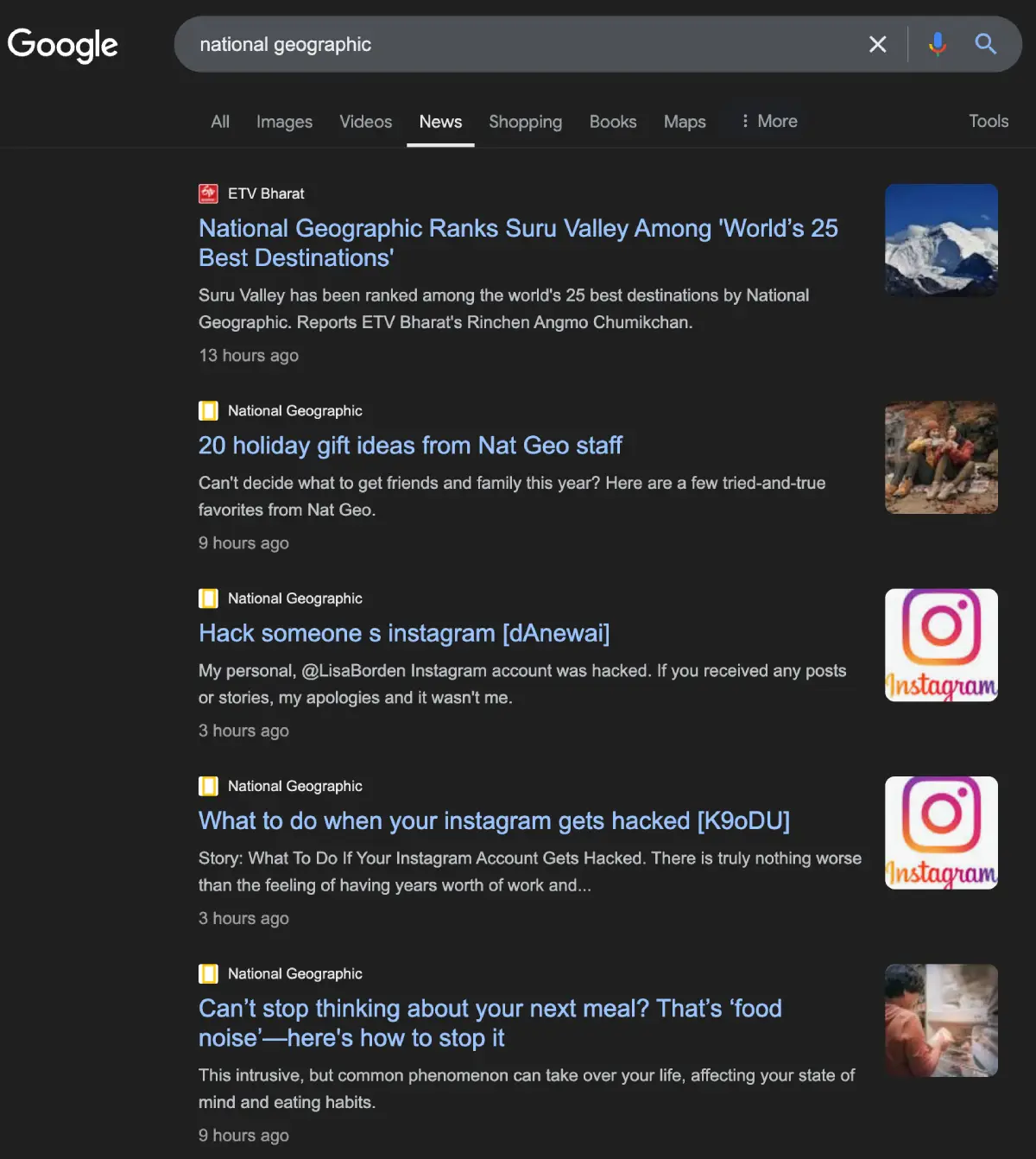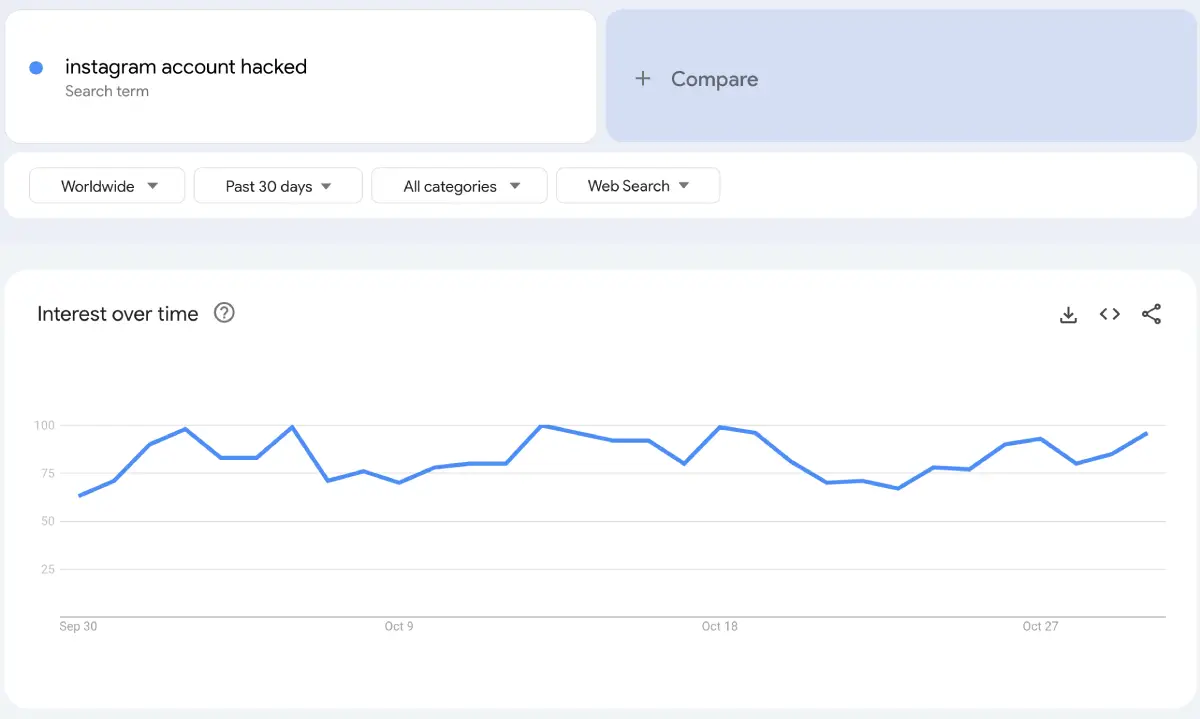Earlier today, while working on a separate post for TechIssuesToday, I noticed a major loophole in the Google News tab. It seems scammers have found a way to trick Google into listing their cloaked websites at the top of Google News results for certain keywords.
As part of my research, I searched for the keywords – Instagram account hacked – and switched to the News tab on Google Search. I had expected to see some news articles from big publishers, but instead, was greeted by a whole list of spam links. In particular, these links were seemingly to articles on how to recover a hacked Instagram account. However, they were all cloaked as leading to the National Geographic website.
Of course, I was taken aback for a few seconds thinking about how and when Nat Geo got into the business of social media news. To satisfy my curious mind, I clicked on one of those links (don’t be like me, never click on shady links) and was taken to what appeared to be a Nat Geo page for a second, but was redirected to a website promising to let you hack Instagram accounts. I’ve shared a few screenshots below for reference.
Google Search News tab:
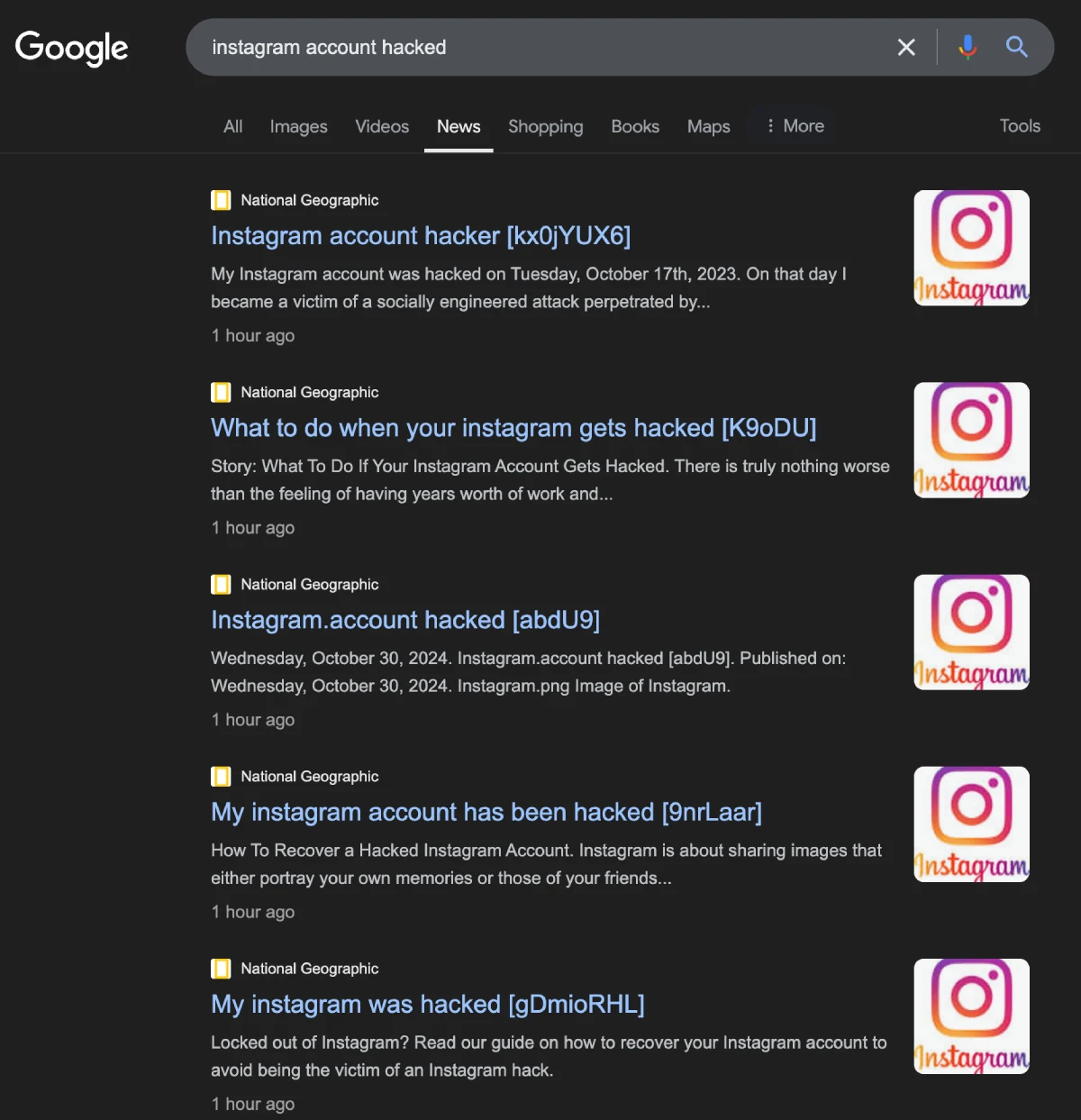
Cloaked National Geographic page:
Redirected to a scam website:
At first, I assumed it might be a one-time issue. Turns out, I was wrong. Even after searching for the exact keywords from a different browser, I was met with the same spam links. Heck, a colleague of mine sitting in Kenya also confirmed they saw the same spam in the Google News tab.
I’m not an expert in this field, however, I noticed that the scam seems to be happening because of some additional funny business going on in the URL. The page that appears briefly is an actual National Geographic page with the following link: https://www.nationalgeographic.com/news-features/son-doong-cave/2, however, the results that pop on Google News have additional redirection text that drives unsuspecting people to the bait-website.
Now, before you get all excited thinking about hacking your ex’s Instagram account, this website doesn’t work beyond the fancy animations that would genuinely make one believe that it’s the real deal. In fact, after all the fancy animations and stuff, the website will ask you to cough up some money to “Get full access” to edit the account details.
To dive in further, I checked to see if I noticed similar results when inserting the name of other social media platforms instead of Instagram. Surprisingly, even after replacing ‘Instagram” from the search term, I was still seeing a few of these spam links in the News section. However, these links were also redirecting me to the same website pretending to be National Geographic. Even searching for National Geographic itself brought up some of these shady links in certain spots in the results. Check out the screenshots added below for reference:
Keywords: Facebook account hacked
Keywords: Snapchat account hacked
Keywords: National Geographic
I tried multiple other search terms, however, I didn’t run into the problem when searching for stuff without the “account hacked” keywords. Nevertheless, Google Trends indicates that users actively use the “Instagram account hacked” search terms daily. So it’s clearly a big problem that needs immediate addressing. It’s possible that the National Geographic website itself has been compromised, but I can’t say for certain yet.
It’s a shame to see Google listing spam websites in the News tab after it destroyed actual useful websites in the name of its Helpful Content Update that rolled out last year. In the meantime, Google itself reportedly relies on AI for 25% of its code. This could be why we’re starting to see obvious cracks appear in Google’s processes.
That said, this isn’t the first time we’ve seen scammers exploiting Google’s News section. In 2023, a Dutch news organization nu.nl (Via) found evidence of scammers taking advantage on ads on Google News to promote scams.
Nevertheless, I’ve reached out to Google’s Search liaison for a potential explanation of how this could happen and if Google’s already aware of the problem. I’ll update the post when I get any more details.
TechIssuesToday primarily focuses on publishing 'breaking' or 'exclusive' tech news. This means, we are usually the first news website on the whole Internet to highlight the topics we cover daily. So far, our stories have been picked up by many mainstream technology publications like The Verge, Macrumors, Forbes, etc. To know more, head here.

